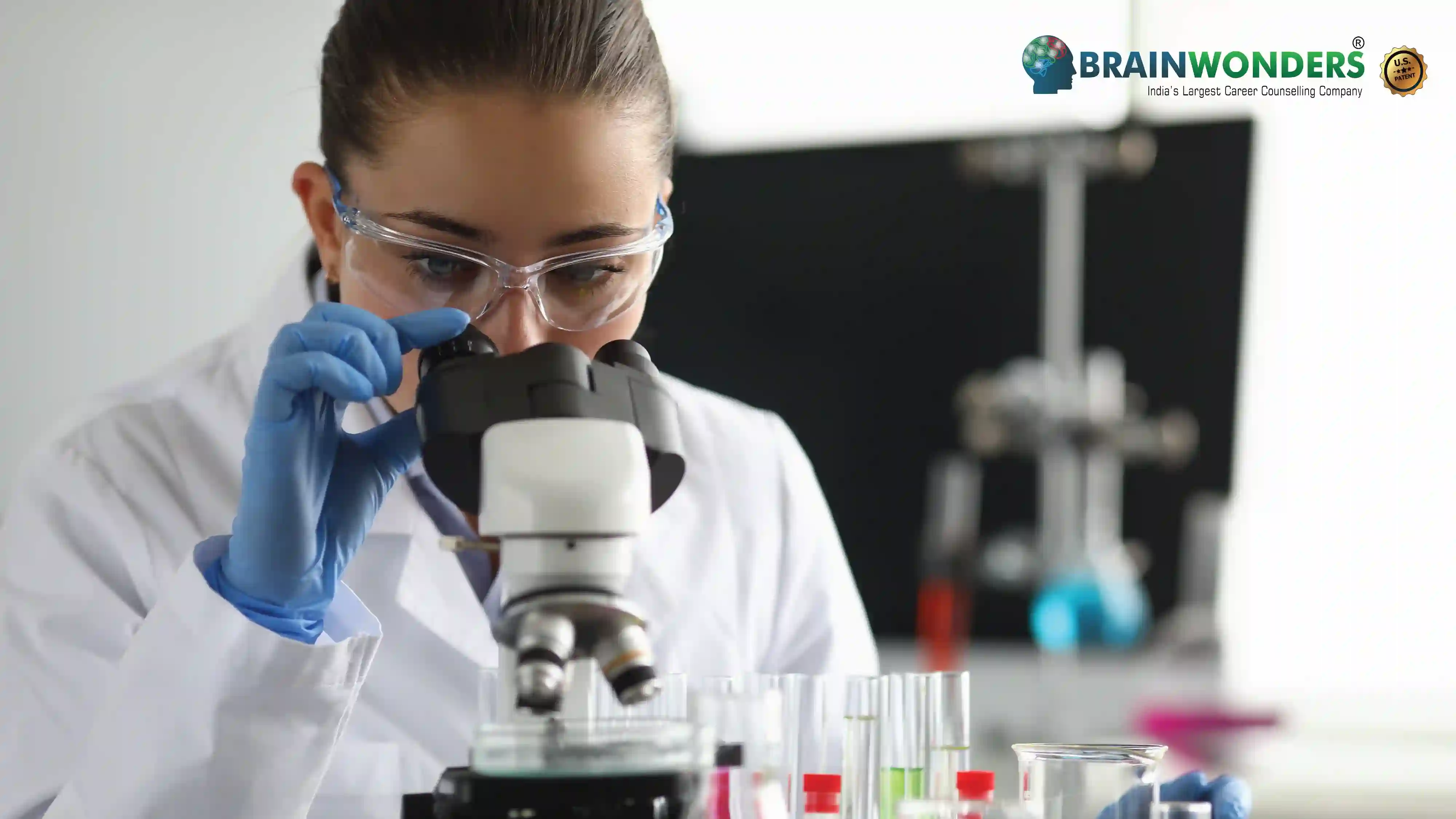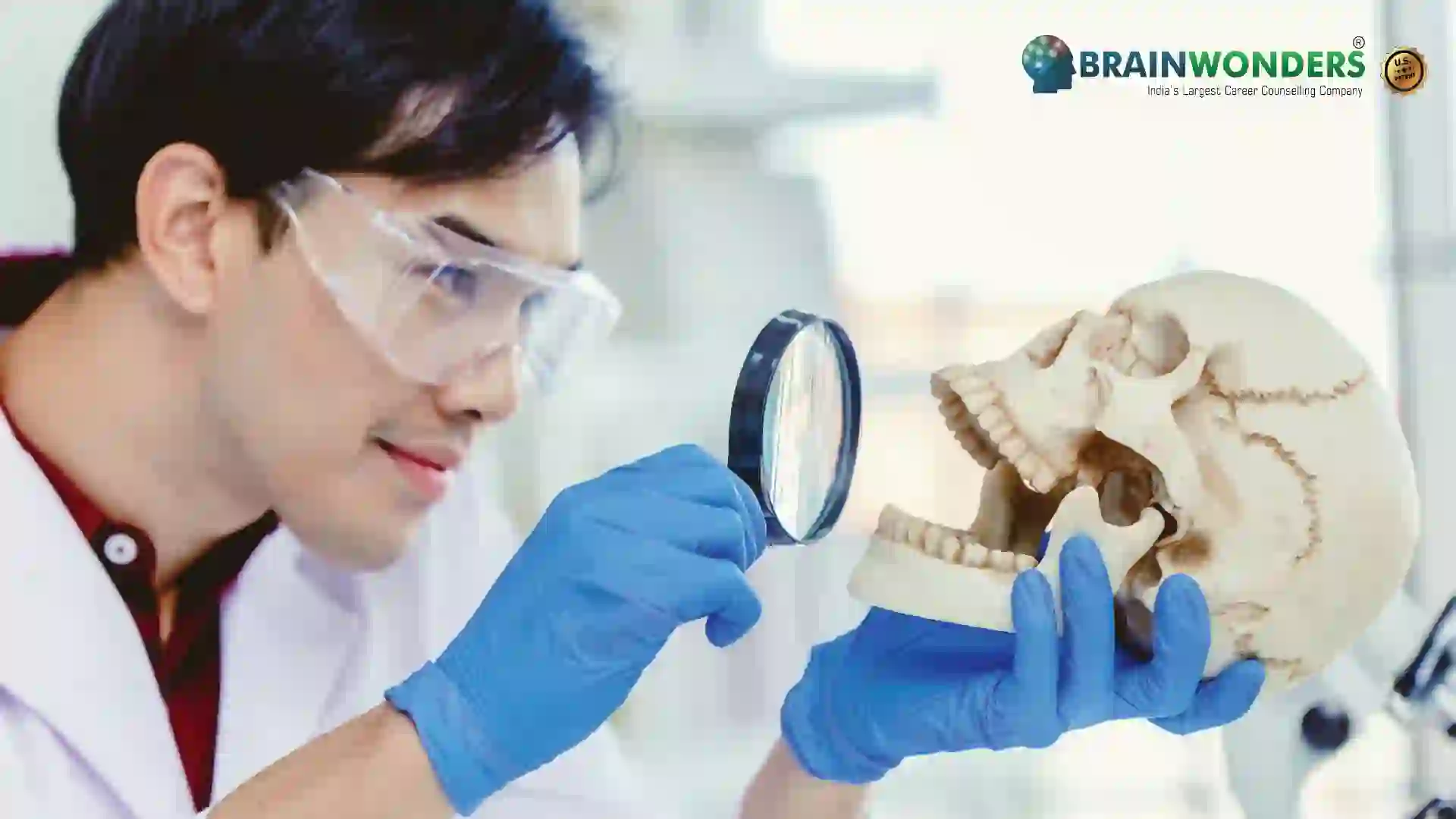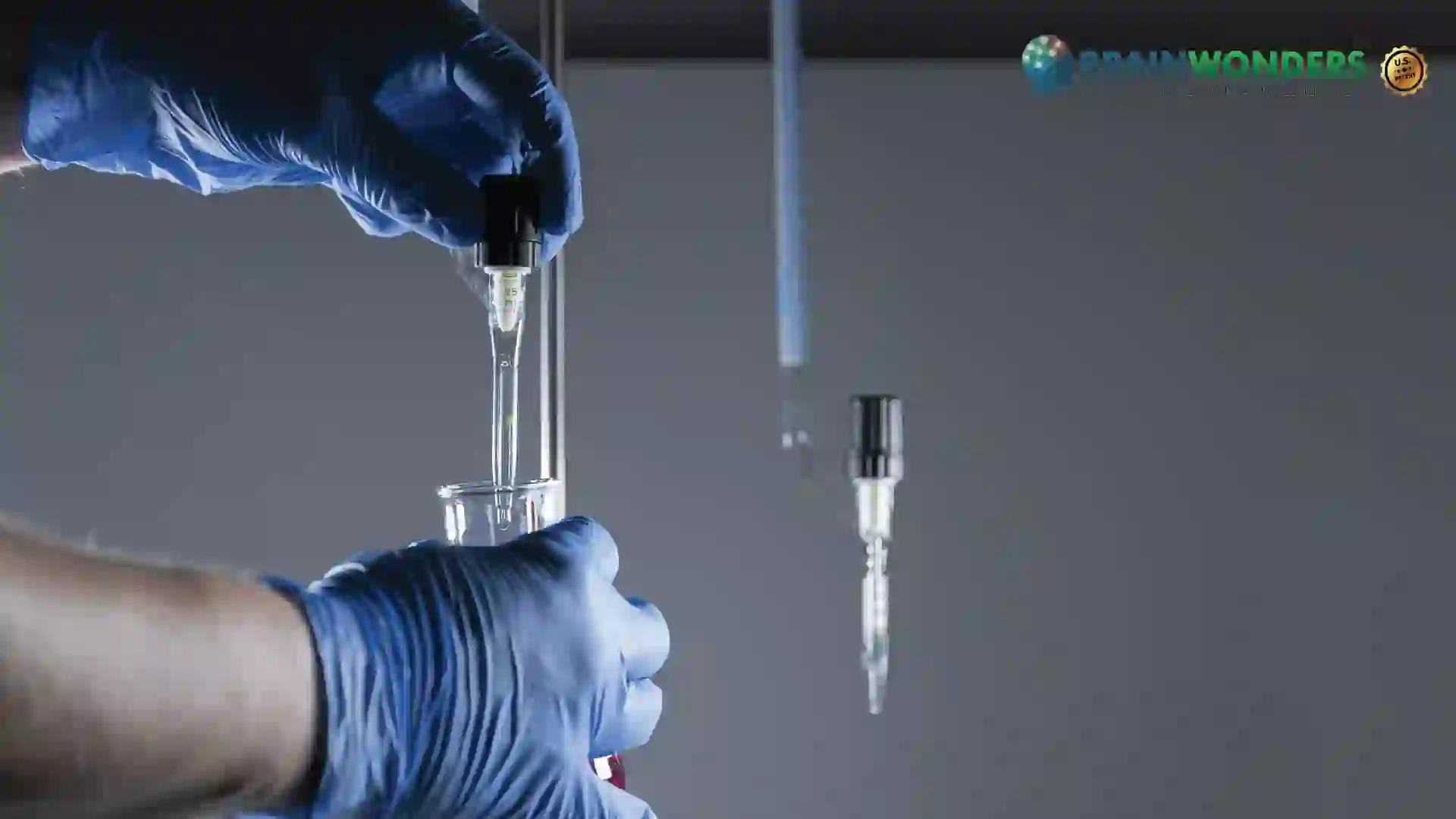How to become a Biotechnologist
Overview, Courses, Exam, Colleges, Pathways, Salary

Overview
Who is Biotechnologist ?
Biotechnology is the field of biological sciences that has a very multidisciplinary approach. Biotechnology makes use of mechanical and computational technological tools of today to help solve biological mysteries and questions of yesterday. Biotechnologist is a candidate that has multidisciplinary knowledge of biology and technology. He/she is well-versed with techniques and tools along with in-depth knowledge about almost all aspects of biology like molecular biology, genetics, knowledge of organ systems and anatomy, microbiology, chemistry, physics, astronomy, mathematics, statistics, computational sciences, immunology, cancer biology, and many more. A biotechnologist generally works in several dynamic and versatile industries. The work of a biotechnology expert can vary from Food sciences to agriculture to health care systems to environment conservatory sciences. Since the subject of biotechnology is very vast and diverse in nature the applications of the subject are endless. Biotechnologists make use of advanced molecular and cell biology techniques to work towards manipulating plant, animal, and microbiological cells in order to make use of the manipulation in solving scientific, industrial, and healthcare-based problems.
Typical day at work
What does Biotechnologist do?
Biotechnologists make use of advanced molecular and cell biology techniques to work towards manipulating plant, animal, and microbiological cells in order to make use of the manipulation in solving scientific, industrial, and healthcare-based problems. The uses of these manipulations are indeed vast since they work in different areas:
- In Agriculture to enhance the quality and quantity of crop yield along with the production of disease resistance in crops.
- In pharmaceutical industries to enhance the drug effect and work towards eradicating drug-resistant bug production.
- In healthcare for the generation of diagnostic, preventive, curative, and palliative tools to manage diseases.
- In fermentation technology for the production of alcoholic beverages, probiotics, antibiotics, prebiotics, food items like kimchi and tempeh, industrial chemicals like acids and alcohols, industrial enzymes, vinegar, other edible acids, vitamins, and secondary metabolites.
- In Botany and zoology, for the production of crossbreeds and hybrids in order to enhance their strengths for the sake of purpose-driven utilization.
- Different fermentation techniques to generate desired byproducts having industrial and domestic value/use.
- Since drug resistance has a significant cause of concern in today's world biotechnologists will have to work towards inventing or discovering newer and better drug components that would prevent the development of drug resistance in the bug.
Some general workings of a biotechnologist include:
- To design and implement research studies
- To develop new research procedures
- To work with lab technicians for research
- To set up the laboratory equipment to conduct and monitor experiments
- To collect, study, and test samples such as food, cells, tissues, blood samples, bacterial cultures, and living organisms
- To record findings and analyze the results
- To identify how the research can be applied to improving human life
Abilities and Aptitude needed
What are the skills, abilities & aptitude needed to become Biotechnologist?
Being a biotechnologist you will eventually have to work towards generating desired results during any research or experimental work. However, it is not essential that a particular experimental setup would always show the exact desired results. A process can have a positive result or a negative result. Hence, a good biotechnologist understands that both positive and negative results give back a better understanding of the experiment and its different components. The right attitude towards any experimental setup and the procedure of the experiment leads a professional to stay persistent during the tenure of the experiment to not give up when the desired results are not obtained. Persistence is key to the success of any experimental study. A person must have the ability to endure pressures of all kinds since more often than not biological science-based projects/experiments have the question of life/death associated with them, making it a very pressurizing job. Hence the performance of the professional under pressure and in the absence of it must be the same or else there could be variations in the results.
When it comes to demonstrating leadership, managing time, confronting difficult situations, or communicating with coworkers, soft skills, or personality traits, are required. These are the personal characteristics that shape a person's ability to perform independently as well as under the influence of others. Soft skills include the capability to demonstrate teamwork in the most professional lab environment or on any company's grounds you will be working with, the ability to demonstrate teamwork is one of the most important competencies, and many professionals fail in their careers because they lack it.
Another desirable skill that employers look for is the ability to assess a problem even in the most challenging situations and focus on finding an accurate and positive solution. Be prepared to face some questions about the proclivity you will exhibit when exposed to some problematic situations. Challenges are unavoidable in any research lab, academic institution, company, or manufacturing industry, and thus a strong mindset with a solution-oriented approach is required.
Working in a lab or another biotech industry will require you to maintain responsibilities at odd hours or days, so be prepared to be judged by your employer for your adaptability. Adaptability also marks your ability to move forward after any failures or problems by not sulking over them and getting stagnant during the procedure. Anyone advancing to managerial positions in companies or becoming a team leader in labs must be able to demonstrate their effectiveness through their leadership skills.
Other important soft skills required in the Biotech industry include the confidence and language expertise to deliver seminars, the ability to present your work in front of the reviewing committee, reflecting your maximum creativity, delivering productive work, meeting deadlines, making the best use of economic resources, adhering to the organization's rules and regulations, and demonstrating honesty in your work. These soft skills may not be taught in some Biotechnology colleges or institutes but can be gained through skill development courses and consistent practice.
Pathways
How to become an Biotechnologist?
Entrance Exam
Entrance Exam for Biotechnologist ?
Courses
Which course I can pursue?
Best Colleges
Which are the best colleges to attend to become an Biotechnologist?
Industries
Which Industries are open for Biotechnologist?
A biotechnologist is a multidisciplinarian having knowledge and experience in several fields. This makes a Biotechnologist an asset for several industries such as:
- Agriculture
- Food and beverages
- Pharmaceutical (Drug and drug formulations)
- Research and development
- Biofuels and Clean energy
- Biofertilizer production
- Fermentation
- Chemical and biochemical
- Diagnostics and paramedics
- Teaching and Education
- Engineering and bioengineering
- Astrophysics and astronomy
- Medical marketing and sales
internship
Are there internships available for Biotechnologist?
Yes, there are internships available for biotechnologists. Biotechnology companies, research institutions, and pharmaceutical firms often offer internships to provide practical training and exposure to various aspects of biotechnology, such as molecular biology, genetic engineering, and drug development, allowing interns to gain valuable industry experience.
Career outlook
What does the future look like for Biotechnologist?
Biotechnology has been the most talked about career ever since the covid-19 pandemic that has made people around the globe aware of the potential of this particular branch of science. Employment in this sector is expected to grow at a rate of 7% between 2020 and 2030, which is about the same as the national average for all occupations. On average, 11,800 openings for biotechnicians are expected each year over the next decade. Many of those openings are expected to be created as a result of the need to replace workers who transfer to different occupations or leave the labor force for other reasons, such as retirement.
The need for biological technicians is expected to rise as demand for biological and medical research has risen after the Covid 19 pandemic. Synthetic biology, a new area of biotechnology, will employ biotechnicians to redesign biological systems or living organisms for use in more efficient ways than currently used. Biotechnology applications could be the subject of research topics such as how to produce biofuels and new treatments for cancer and other diseases.







